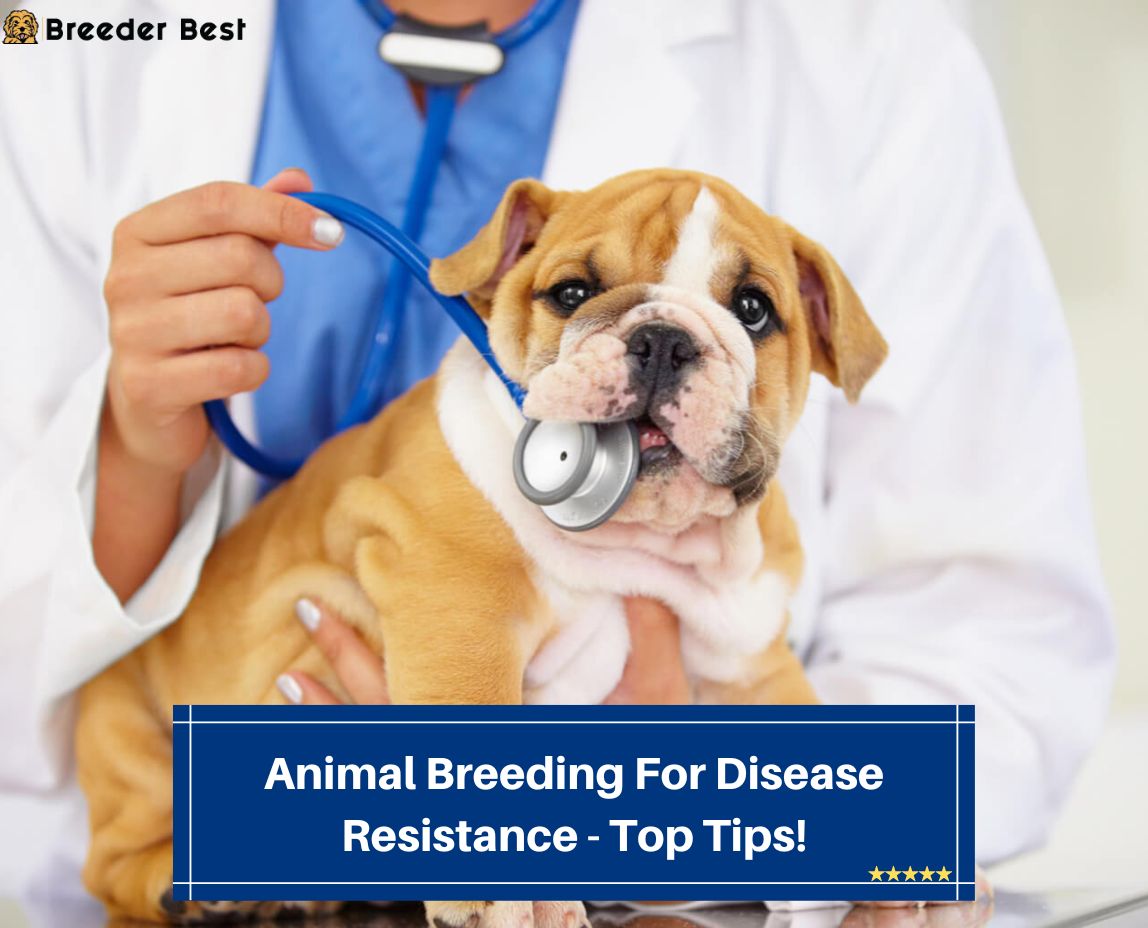Animal breeding for disease resistance has been around for centuries. In fact, it was one of the first ways farmers tried to protect their crops and livestock from diseases. Over time, animal breeders have become much more sophisticated in their methods to avoid animal breeding diseases.
Still, the basic principle remains the same: to create new animal breeds that are resistant to specific diseases. According to the World Health Organization, animal breeding for disease resistance is a crucial strategy in the fight against zoonotic diseases or diseases that can spread from animals to humans.
Common Animal Diseases
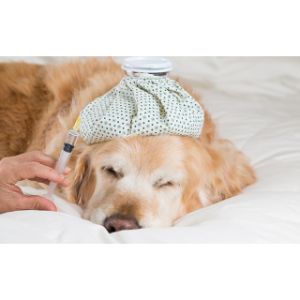
There are many diseases that animal breeders try to protect their animals from. Some of the most common include:
- Rinderpest – The disease affects cattle and causes fever, diarrhea, and decreased milk production. Vaccination can prevent this infectious disease in adults, but it is fatal in young calves.
- Foot-and-mouth disease – The highly contagious viral disease affects all cloven-hoofed animals, including cattle, sheep, and pigs. It causes fever and blister-like lesions on the tongue, mouth, and hooves.
- Bovine tuberculosis – The chronic disease affects cattle and is caused by the bacterium Mycobacterium Bovis. It can spread to humans, so it is important to control the disease in cattle.
- Newcastle disease – The viral disease affects chickens and other poultry. It causes respiratory problems, diarrhea, and sometimes death. TIP: If you are breeding poultry for disease resistance, make sure you also check for resistance to common poultry parasites.
- Classical swine fever – The viral disease affects pigs and causes fever, vomiting, and diarrhea.
- Anthrax – A bacterial disease that can affect all animals but is most common in herbivores such as cattle, sheep, and goats, anthrax causes fever and respiratory problems and can be deadly.
- Rabies – A viral disease that affects all mammals, including humans, rabies is transmitted through an infected animal’s bite and causes brain inflammation and death.
- Brucellosis of sheep – The bacterial disease affects sheep and causes abortions in pregnant ewes.
Check out for more: When To Euthanize A Dog With Kidney Failure? and Best Small Non-Shedding Dog Breeds
Top 11 Tips For Animal Breeding for Disease Resistance
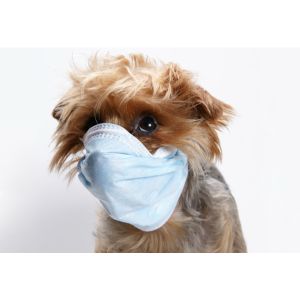
Let’s take a look at the top tips for animal breeding for disease resistance:
Learn About The Disease Which Is Affecting Your Population
First and foremost, to start breeding for disease resistance, you need to learn about the disease affecting your population. What are the symptoms? How does it spread? What is the mortality rate?
Once you have a good understanding of the disease, you can look for animals that show resistance. You can do this by looking at reports of outbreaks, talking to other breeders, and observing your animals.
If you have a farm, pay close attention to which animals fall ill and which seem to remain healthy. Healthy individuals are likely to have a genetic resistance to the disease and are suitable for breeding.
Traits In Animals Can Be Inherited

Animals can inherit traits from their parents, so if you find an animal resistant to a particular disease, its offspring will probably also be resistant.
To use this to your benefit, you should always keep detailed records of the health of your animals and their offspring. Records will help you identify which animals carry the genes for disease resistance and which do not.
Some common traits that are associated with disease resistance include:
- A strong immune system
- The ability to fight off infection
- A high level of fitness
- A healthy coat
You should also remember that no animal is entirely resistant to all diseases. Even the healthiest animal can succumb to illness if not properly cared for.
When breeding for disease resistance, it is essential to remember that there are other important traits you need to consider. They include:
- Milk production
- Fertility
- Growth rate
- Temperament
Use Genetic Testing To Identify Disease-Resistant Animals
If you want to be sure that an animal is carrying the genes for disease resistance, you can consider using genetic testing.
According to animal genetics experts, there are several different tests you can use to identify genes associated with disease resistance. These include things like DNA microarrays and sequencing.
Genetic testing is a relatively new technology, but it is becoming increasingly affordable and accessible. Genetic testing will help you identify which animals carry the genes for disease resistance and allow you to make informed decisions about your breeding program.
Breed Healthy Animals

Another tip for breeding for disease resistance is to breed healthy animals. The chances of a disease-resistant animal are more significant if it is raised in a clean, well-ventilated environment with plenty of fresh food and water.
Breed Animals Only If You Have The Necessary Knowledge And Experience
The process of breeding animals is complex, and you should only attempt it if you have the necessary experience and knowledge.
If you are unsure about anything, it is always best to seek advice from a professional. There are many books and websites that can provide you with information on animal breeding, so do some research before you get started.
Keep Records Of All Your Breeding Activities
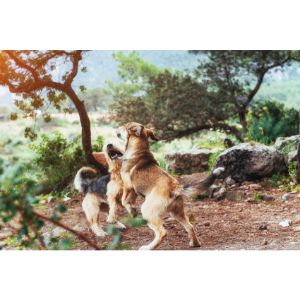
It is important to keep records of all your breeding activities. Record keeping will help you track your program’s progress and identify any potential problems. It is also a good idea to take photographs of your animals to keep a visual record of their health and appearance.
There are six main types of records:
- Identification – Includes the animal’s name, date of birth, place of birth, parents’ names, and any other identifying information.
- Health – Includes information on the animal’s health, vaccinations, and any other medical treatment it has received.
- Performance – Provides information on the animal’s milk production, growth rate, and other relevant performance data.
- Breeding – Includes information on the animal’s mates, offspring, and other breeding information.
- Feeding – Outlines the animal’s diet, supplements, and other feeding information.
- Miscellaneous – This is any other relevant information that does not fit into the other categories.
Keeping records will help you:
- Monitor the health of your animals.
- Make informed decisions about your breeding program.
- Improve the health of your animals over time.
Use Only High-Quality Feed And Supplements
Experts recommend only using high-quality feed and supplements for your animals. High-quality feed and supplements will help ensure that they get the nutrients they need and help prevent them from becoming sick.
In addition, recent studies have shown that animals that feed on a diet of high-quality feed and supplements are less likely to develop a disease.
Many different types of animal feed and supplements are available, so do your research to find the right one for your animals.
Consider Using Vaccinations
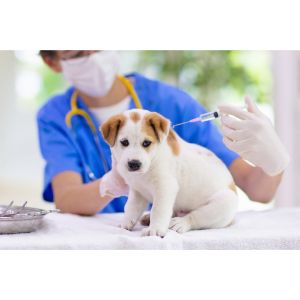
One of the best ways to prevent diseases is by vaccination.
Vaccines help protect your animals from disease by stimulating their immune system. They do this by exposing them to a controlled amount of the virus or bacteria that causes the disease.
The exposure allows their bodies to learn how to fight off the infection and build antibodies against it.
It is imperative to vaccinate your animals against zoonotic diseases. Certain zoonotic diseases have the potential for pandemic spread by human contagions, such as avian influenza, SARS, and rabies.
Vaccination can also be used to control diseases like foot-and-mouth and tuberculosis in cattle, sheep, and pigs.
Be Vigilant About Animal Health And Disease
You should always be vigilant about animal health and disease. Vigilance means keeping an eye out for signs of illness and seeking veterinary advice as soon as possible if you think there is a problem.
It is also advisable to quarantine any new animals you bring into your herd or flock to monitor them for signs of disease.
Avoid Inbreeding

A critical tip for breeders looking to produce disease-resistant strains is to avoid inbreeding. When two closely related individuals are bred together, there is an increased chance of sharing undesirable recessive genes. Inbreeding can cause various problems, including:
- High mortality rates
- Increased frequency of hereditary abnormalities
- Lower growth rate
- A decrease in fertility
By avoiding inbreeding, breeders can help ensure that their animals are healthy and have a strong immune system. Outbreeding can also help increase genetic diversity, which is essential for maintaining a population’s long-term health.
Consult a professional
If you are considering breeding animals, it is always a good idea to consult a professional. A professional can advise you on the best way to set up your breeding program and help you avoid common mistakes. They can also provide information on your animals’ health and welfare.
Conclusion For Animal Breeding For Disease Resistance
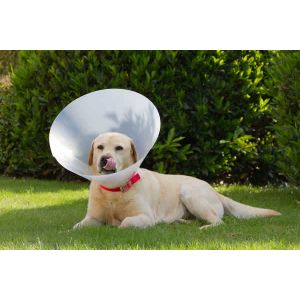
Animal breeding for disease resistance is a complex process that you should only undertake if you have the necessary knowledge and experience. However, if done correctly, it can be an effective way to improve the health of your animals and produce disease-resistant strains.
When breeding animals for disease resistance, be sure to avoid inbreeding, use high-quality feed and supplements, monitor animal health closely, and consult a professional if you are unsure about anything.
By following these tips, you can help ensure that your animal breeding program is successful and that your animals are healthy and free from disease.
You will also like:

